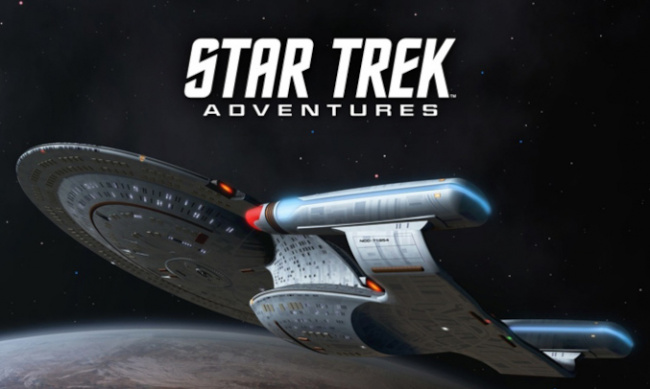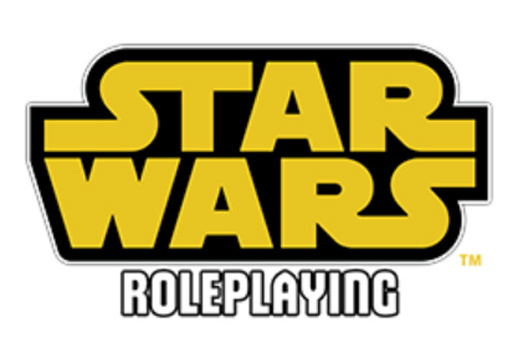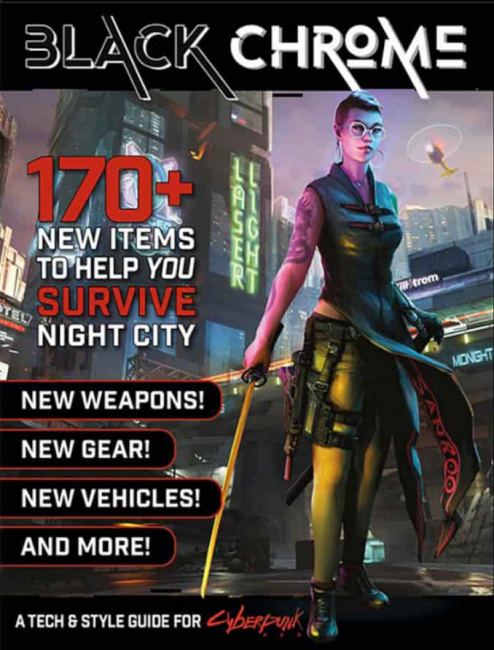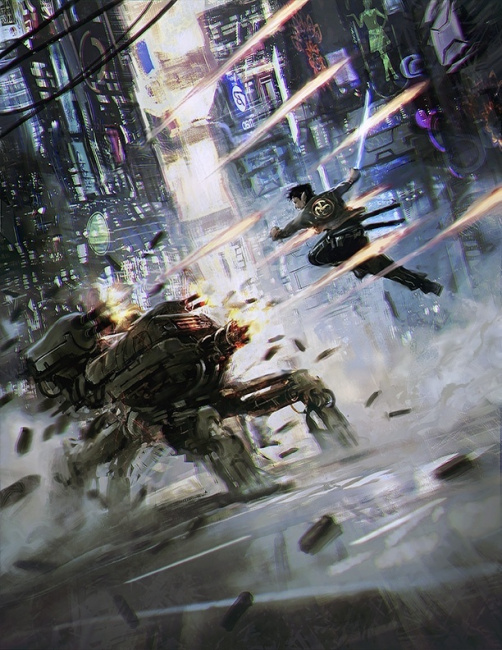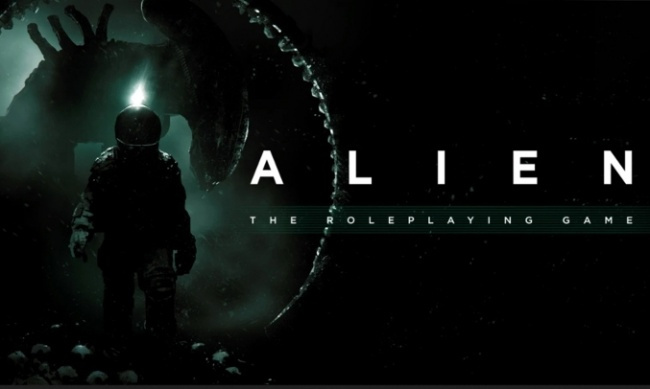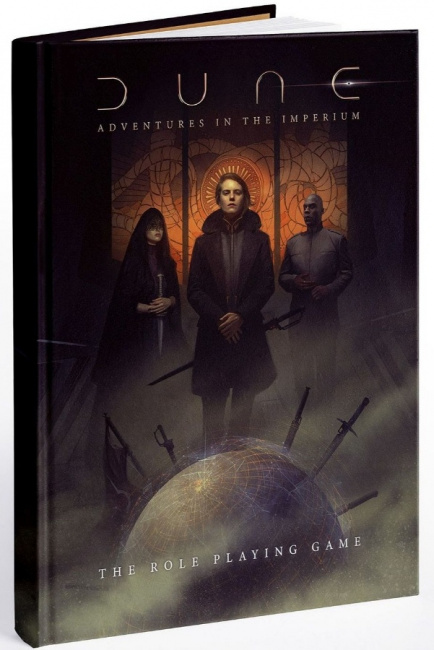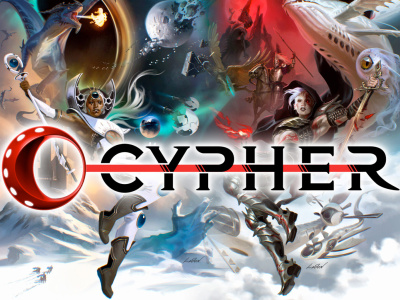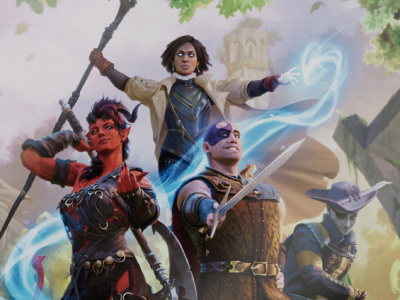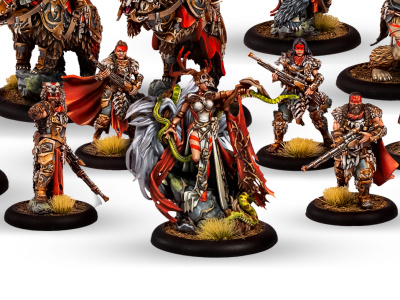Science fiction RPGs have been on the rise in recent years, as more and more roleplayers look to explore the final frontier as an alternative to fantasy and horror RPGs. The customer interest level in science fiction properties, in general, has been higher lately, primarily due to popular blockbuster movies like Dune and Avatar: The Way of Water as well as hit TV shows like The Mandalorian and the various Paramount+ Star Trek series. It may benefit retailers to take a look around at the sci-fi RPGs available and decide whether or not adding lines of these games to their store shelves is right for them.
Science fiction RPGs have a long, storied history in the hobby games business. The real boom in science fiction RPG publishing came in the late 80s into the 90s, after fans' ravenous appetites for the genre ran its course through the late 70s into the mid-80s. Movies like Star Wars, E.T., Tron, Blade Runner, and dozens of others had been released into theaters at a fairly constant pace between 1977-1986 and caused a little bit of fatigue where the genre was concerned. This was almost a "perfect storm" scenario for RPG creators, because by the late 80s and early 90s, there wasn't too much being done with science fiction outside of the occasional Star Trek movie, and notable IPs were more available to be turned into creative works.
In 1988, R. Talsorian Games published Cyberpunk RPG, a Blade Runner-inspired game by Mike Pondsmith (see "Hall of Fame Class of 2023"). This game was an alternate-timeline urban fantasy in which residents of the world who remained were rocked by a war between mega-corporations for dominance. Night City is the main setting for this game, where cyberpunks engage in gang warfare and also work as mercenaries. Since its inception, there have been four editions of Cyberpunk RPG, the most recent of which, Cyberpunk RED, came along with the release of the Cyberpunk 2077 video game. R. Talsorian continues to put out new books for this series; the Black Chrome gear book will hit stores in March 2023 (see "'Cyberpunk RED' Gear Rulebook").
In 1989, FASA released Shadowrun, one of the world's most recognized science fantasy RPG properties. Its setting is somewhat similar to Cyberpunk RPG, featuring another alternate history world dominated by mega-corporations and cyberpunks running wild in the streets, but Shadowrun offers a twist: the prevalence of magic in the world setting and the inclusion of fantasy races like orks, elves, and dwarves. FASA published this game until 2001, when the company closed its doors (see "FASA Fades Away"). Some of the ex-FASA members re-emerged with the Shadowrun IP as part of the newly formed WizKids company. The pen and paper rights for Shadowrun were later acquired by Topps when they bought WizKids in 2003 (see "Topps Acquires WizKids"). Topps eventually shut down WizKids, and offered Catalyst Game Labs a long-standing licensing agreement for Shadowrun (see "Catalyst Keeps 'Shadowrun'"). Catalyst now has Shadowrun RPG well into its Sixth World and has new sourcebooks for the game coming to market periodically (see "'Shadowrun: Null Value'").
Beyond the major lines released in the late 80s, there are many more lines of science fiction RPGs out there, but two major publishers stand out above the rest. Free League Publishing has more or less been the "gold standard" as an RPG publisher in recent years. Their biggest hit, and arguably one of the biggest science ficiton RPG games of all-time, is ALIEN RPG (see "'Alien' Stalks the Tabletop"). This RPG, based on the ALIEN movie starring Sigourney Weaver, was released right before the COVID-19 pandemic and sold very well despite the rolling lockdowns. The game is definitely a must-carry for stores, and FLP's recent Blade Runner RPG is also worth a look (see "'Blade Runner' Becomes an RPG").
Another major publisher worth noting is Modiphius Entertainment. They make both the Dune RPG and Star Trek Adventures TTRPG. Dune has a 42-year history as a game IP (see "Five New Dune Games from Four Publishers"), and recently made another comeback in the space with the release of the new Dune movie from Warner Bros. The new version of the RPG arrived in 2021 (see "Modiphius Details 'Dune: Adventures in the Imperium' RPG"), and Modiphius has new books scheduled for 2023 (see "'Dune: Adventures in the Imperium RPG' Supplement"). Star Trek Adventures TTRPG has been on a multi-year mission across the RPG space since 2017; the Utopia Plantia Starfleet Sourcebook hit retail in October 2022 (see "Utopia Plantia Starfleet Sourcebook'").
This coverage is part of RPG Week, celebrating all things RPG at ICv2. For more ICv2 RPG Week articles, click here.



